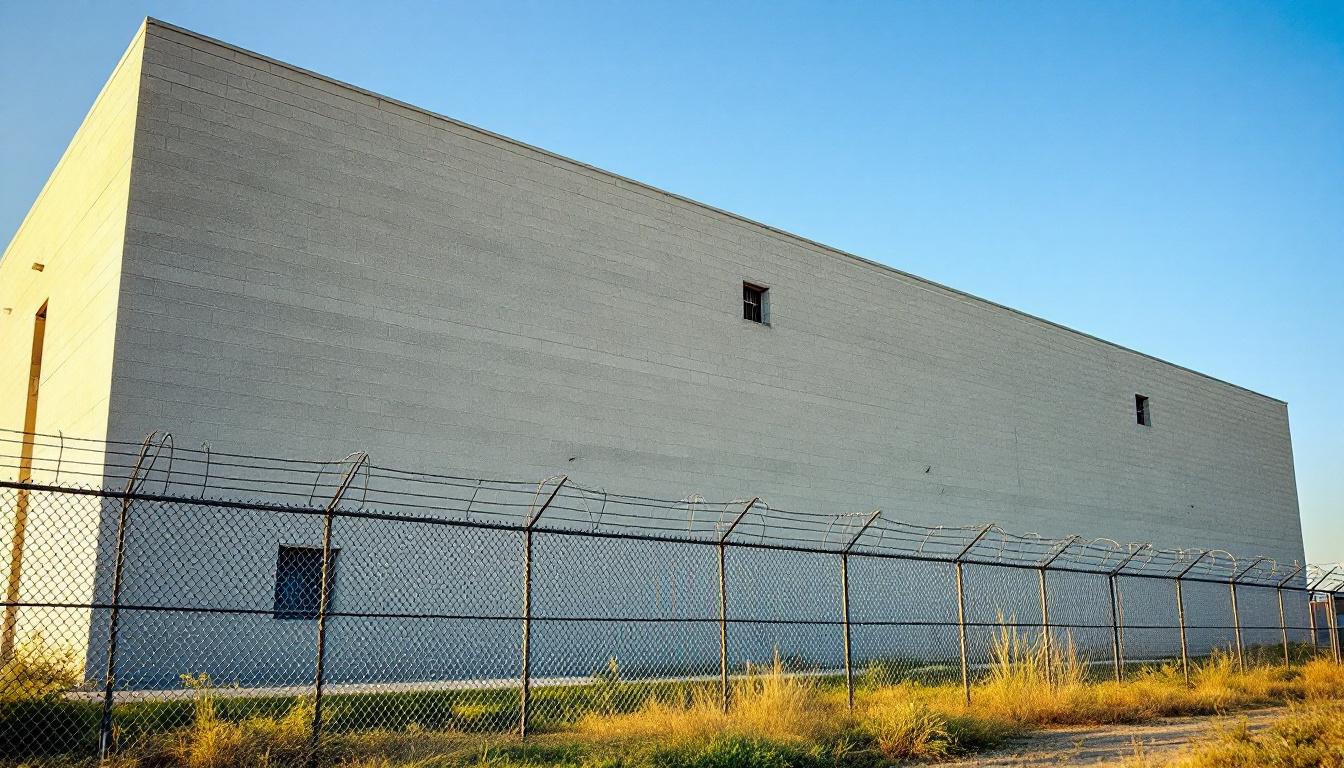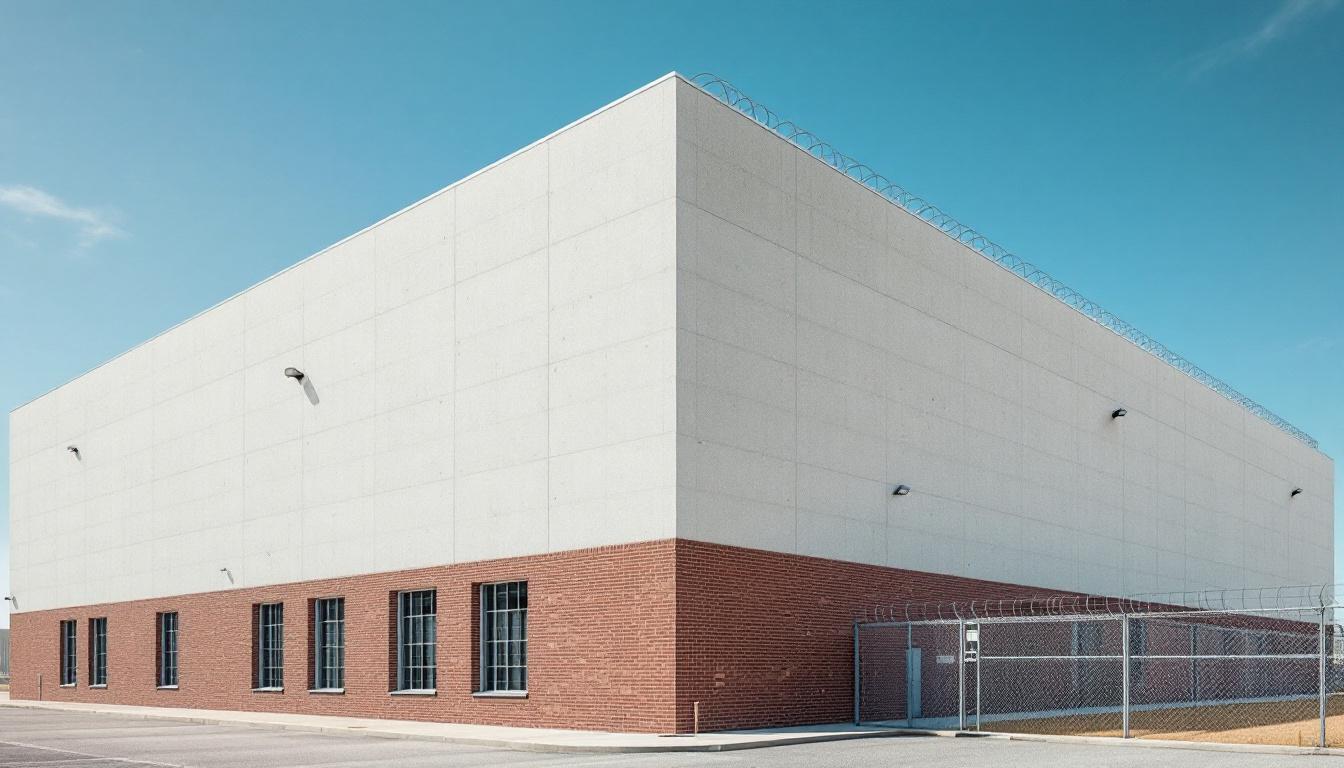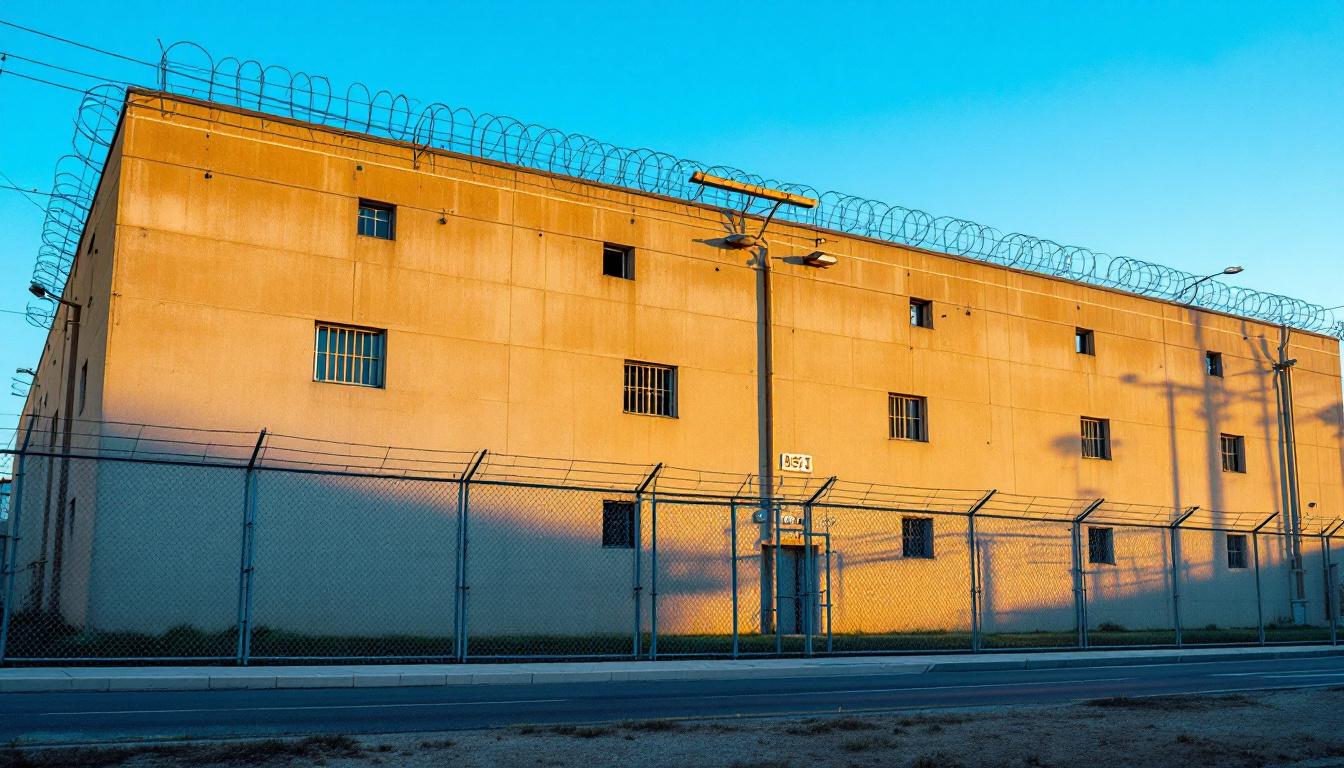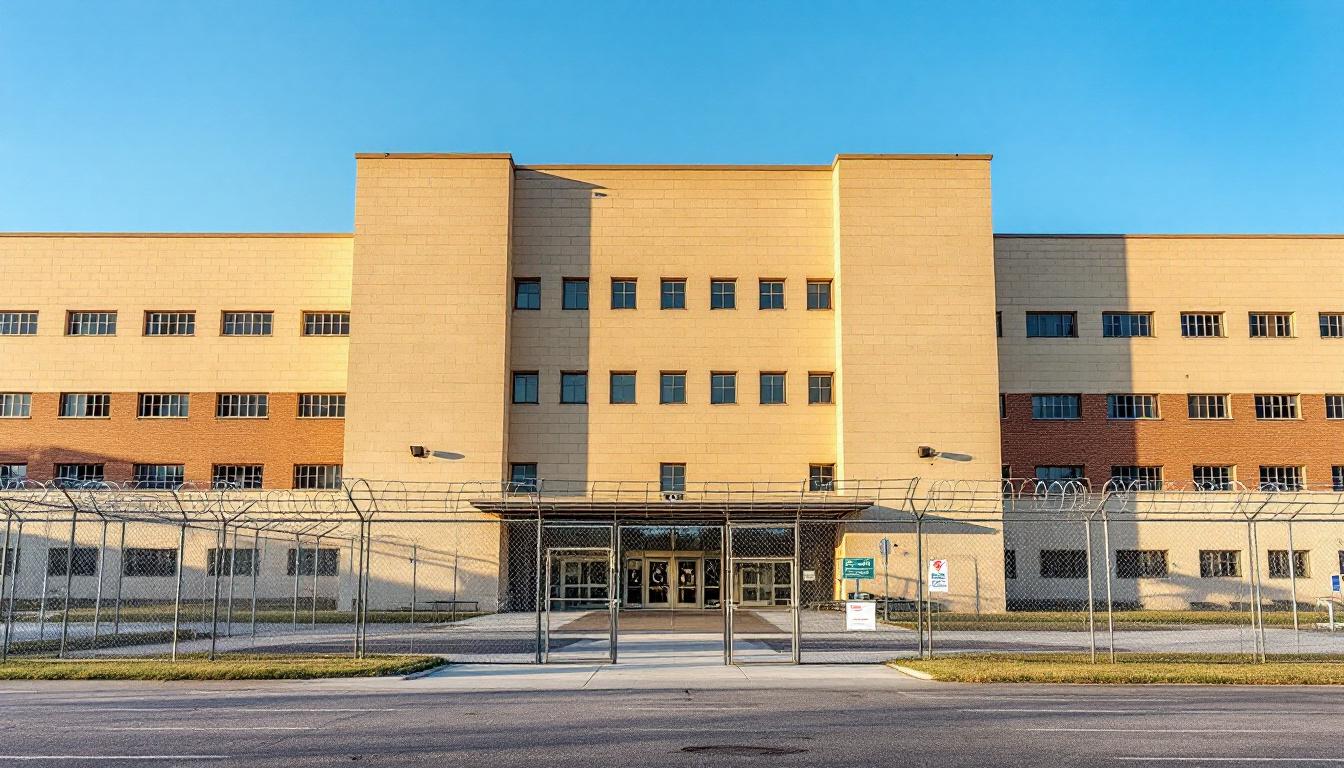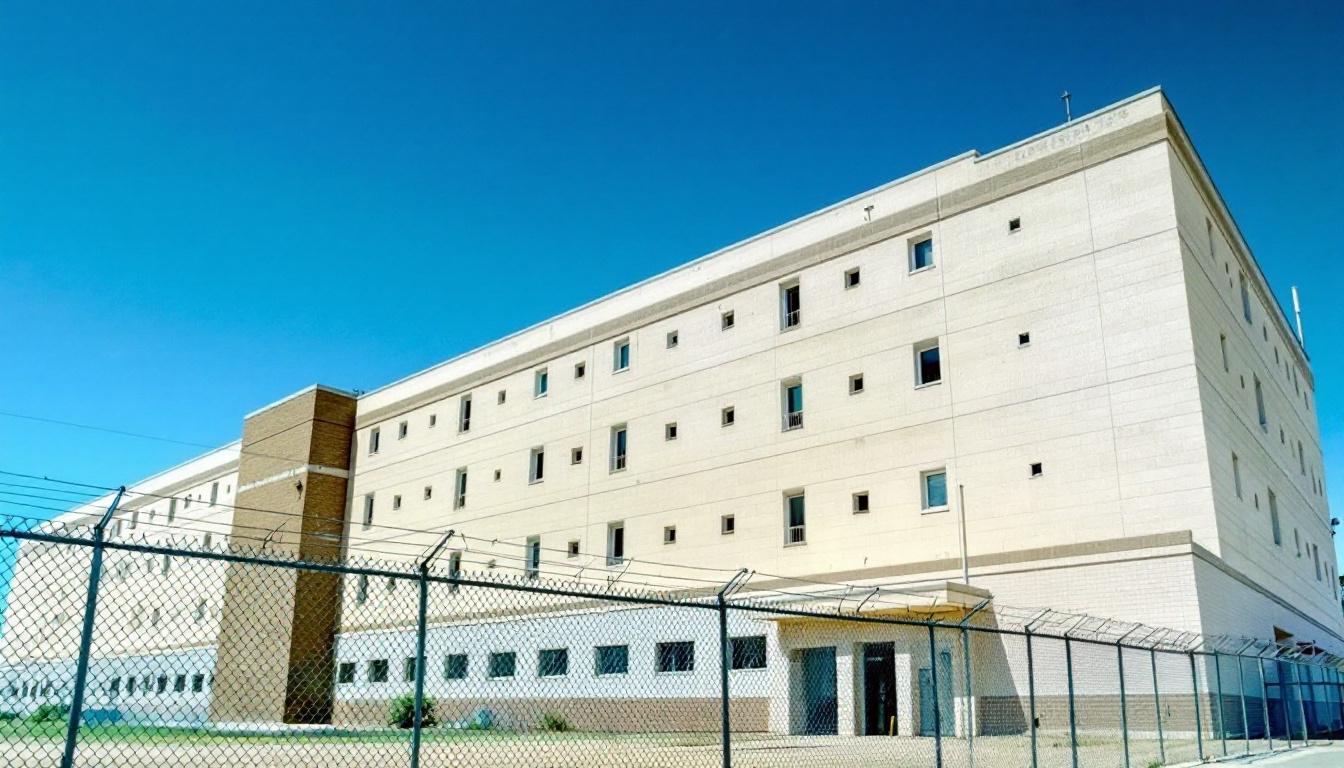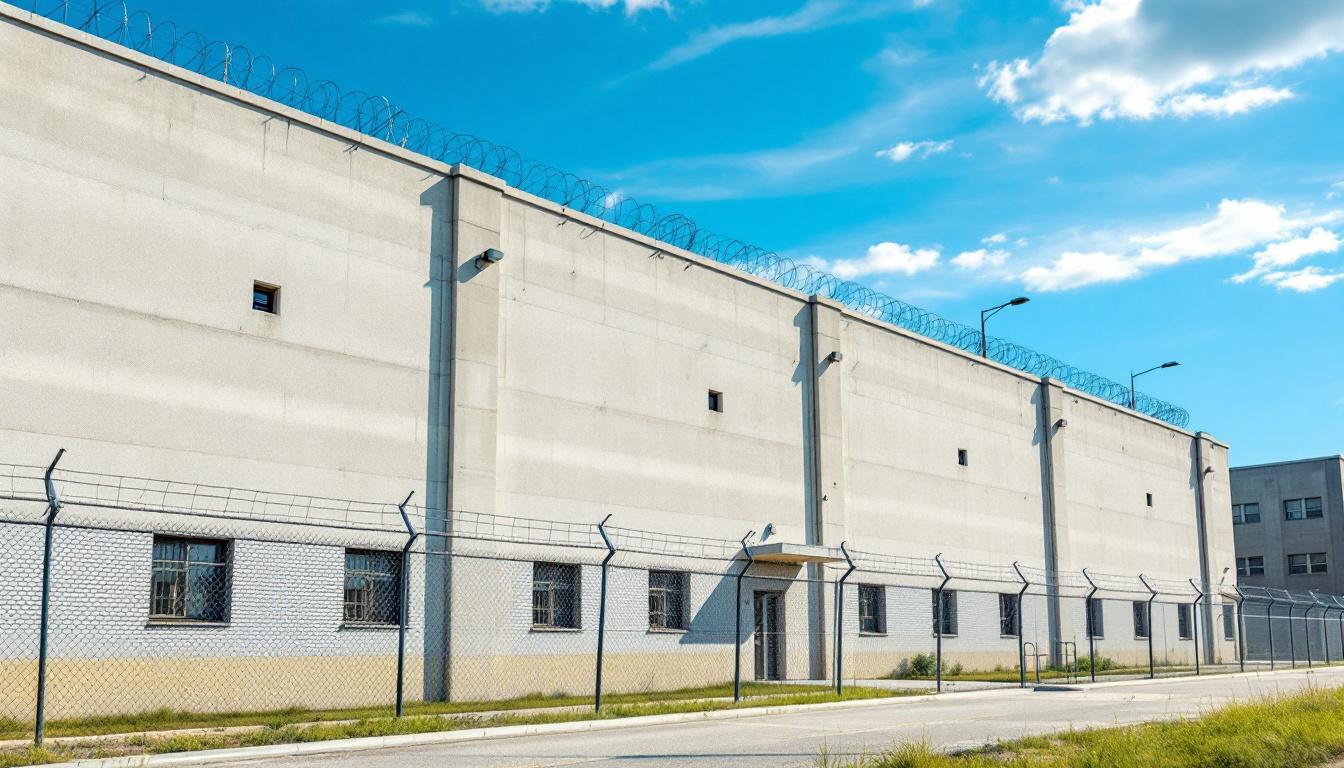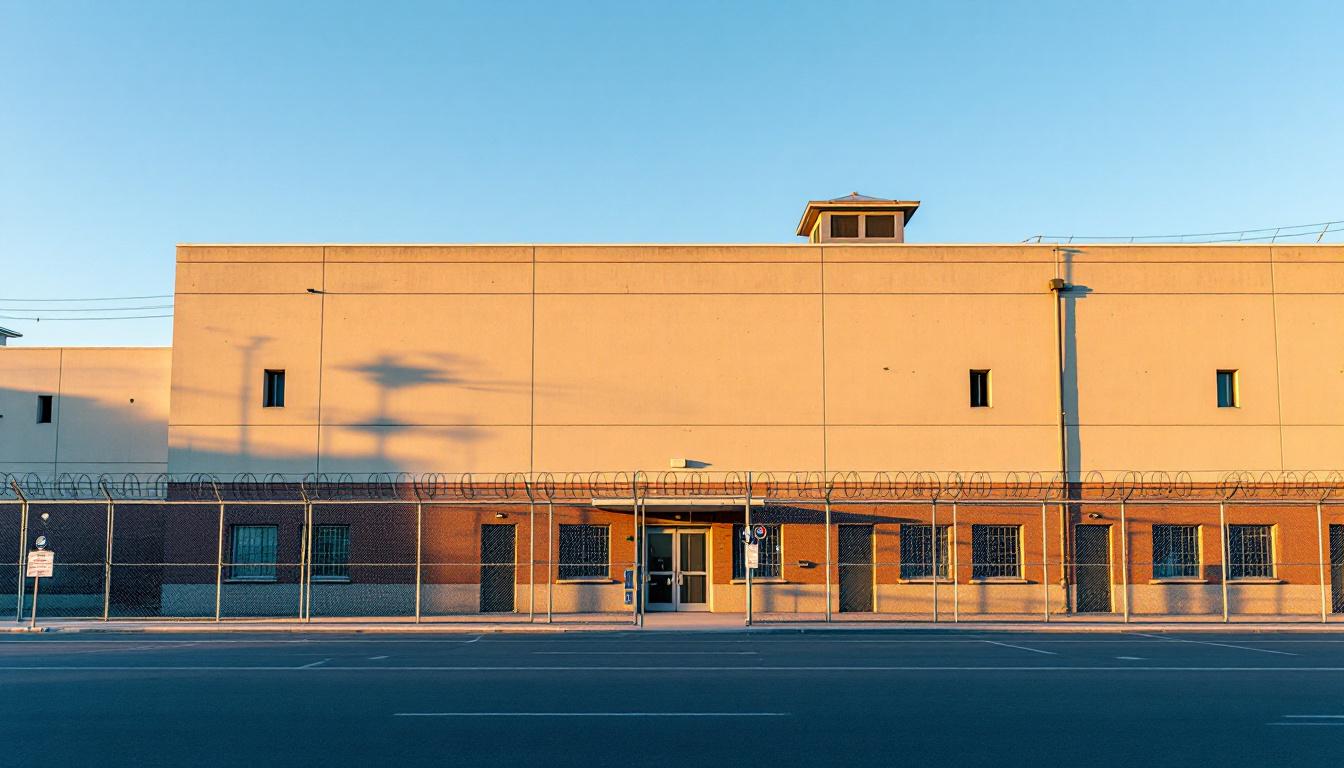
Quick Navigation
How to contact an inmate at Platte County Jail
This comprehensive guide will walk you through how to connect with an inmate at Platte County Jail. Follow the steps below to find an inmate and send letters and photos:
- Search for the inmate using our search tool below
- Create your account or log in to Penmate
- Write your message (up to 6,000 characters)
- Send instantly - inmates receive printed copies daily
Find an Inmate
Search for an inmate to start communicating today
Tip: You can search by first name, last name, or inmate ID number
To contact a person at Platte County Jail start by searching for the person on the official facility website. Perform a search by following these steps:
- Step 1: Enter their first name and last name into the search form and click "Search"
- Step 2: Locate their inmate record
- Step 3: Write down their Inmate ID and any housing information provided
Important! Be sure to enter the person's full name. Nicknames should not be used.
How to Send Messages to Inmates

You can use your phone or computer to send emails, letters, and photos to an inmate. Messages are sent electronically to inmate tablets or kiosks at the facility. If you would like to send a message, start by searching for an inmate at Platte County Jail.
Sending Photos and Postcards

A great way to send love and support to a loved one at Platte County Jail is to send photos and postcards. It only takes a few minutes to send photos from your phone and it makes a huge difference. You can also mail postcards with words of support and inspiration, or design your own postcard for special moments like birthdays and holidays.
Important! Be sure not to send any explicit photos or they may not be approved by the facility. You can also use a photo printing app like Penmate to make sure your photos are printed at the correct size (4x6 or 3x5) and are mailed according to the rules and regulations of Platte County Jail.
Frequently asked questions about Platte County Jail
-
How long does it take to deliver a message?
If you're sending an email message your letter is usually delivered within 24-48 hours. For messages sent via mail you should expect delivery within 3-7 days. All messages will need be approved by Platte County Jail.
-
How much does it cost to send a message to Platte County Jail?
You can send a message free using your phone or mail a message via USPS for the price of a $0.60 stamp and envelope. You can also purchase credits or e-stamps from services starting at $1.99.
-
What services can I use to contact an inmate at Platte County Jail?
Penmate
You can use Penmate to send letters and photos to an inmate from your phone. It's an easy way to stay in touch during your loved one's incarceration. Use the inmate locator to find an inmate's location and contact information, then you can send messages within a few minutes.
Securus messaging
Securus may be another option for communicating with an inmate at Platte County Jail. You can create a friends and family account and purchase credits to send messages. All messages will be reviewed and must be approved by the facility.
JPay
Some county jails and state prisons may support sending messages with JPay. You must register an account with the system, find your loved one, and purchase stamps to send messages. For some locations you can also attach photos.
Smart Jail Mail
You may also check if Smart Jail Mail is available at Platte County Jail. Smart Jail Mail is operated by Smart Communications and has contracted with some state and county jails. After purchasing credits, your messages and photos are sent to the facility, printed out, and then handed out to your loved one.
-
What is the mailing address of Platte County Jail?
Mailing address:
Platte County Jail
415 S 3 St
Platte City, MO 64079
Phone: (816) 858-3462 -
What are the visiting hours at Platte County Jail?
Visiting hours at Platte County Jail vary by housing unit and security level. Generally, visits are scheduled on weekends and holidays, with some facilities offering weekday visits. Contact the facility directly at (816) 858-3462 or check their website for the current visiting schedule. Visits typically last 30-60 minutes and must be scheduled in advance.
-
What items are prohibited when sending mail to Platte County Jail?
Prohibited items typically include: cash, personal checks, stamps, stickers, glitter, glue, tape, staples, paperclips, polaroid photos, musical or blank greeting cards, hardcover books, magazines with staples, and any items containing metal or electronics. Only send letters on plain white paper with blue or black ink. Photos must be printed on regular photo paper (no Polaroids). Always check with Platte County Jail for their specific mail policies.
-
How do I send money to an inmate at Platte County Jail?
You can send money to an inmate at Platte County Jail through several methods: 1) Online using JPay, Access Corrections, or the facility's approved vendor, 2) Money orders mailed directly to the facility with the inmate's name and ID number, 3) Kiosks located in the facility lobby, or 4) Over the phone using a credit or debit card. Fees vary by method, typically ranging from $2.95 to $11.95 per transaction.
-
Can I schedule a video visit with an inmate at Platte County Jail?
Many facilities now offer video visitation as an alternative to in-person visits. At Platte County Jail, video visits may be available through services like Penmate, Securus Video Connect, GTL, or ICSolutions. Video visits typically cost $10-20 for 20-30 minutes and must be scheduled in advance. You'll need a computer or smartphone with a camera and reliable internet connection. Contact the facility for their specific video visitation policies and approved vendors.
-
What identification do I need to visit an inmate at Platte County Jail?
All visitors must present valid government-issued photo identification such as a driver's license, state ID, passport, or military ID. Minors must be accompanied by a parent or legal guardian who can provide the minor's birth certificate. Some facilities require visitors to be on the inmate's approved visitation list, which may require a background check. Contact Platte County Jail for specific ID requirements and visitor approval procedures.
-
How can I find out an inmate's release date?
To find an inmate's release date at Platte County Jail, you can: 1) Use the online inmate search tool if available, 2) Call the facility's records department, 3) Contact the inmate's case manager or counselor, or 4) Have the inmate provide this information during a call or visit. For privacy reasons, some facilities only release this information to immediate family members.
Facility Overview
Official Website

About Platte County Jail
Comprehensive rehabilitation programming and individualized case management form the cornerstone of operations at Platte County Detention, where the facility's approach to offender management emphasizes structured pathways toward successful community reintegration. This MO correctional facility typically implements evidence-based practices that address the underlying factors contributing to criminal behavior, while maintaining secure custody standards appropriate for its detention center classification.
Located in Platte City, the facility generally operates within Missouri's broader correctional framework by processing individuals at various stages of the judicial process. The detention center may offer educational opportunities, substance abuse counseling, and vocational training programs designed to support personal development during incarceration. Mental health services and medical care are typically integrated into daily operations, with case workers often coordinating individualized treatment plans that align with each person's specific needs and circumstances.
Through systematic programming and structured daily routines, Platte County Detention generally focuses on creating an environment where individuals services extend beyond basic custody requirements. The facility's position within the Midwest region often allows for collaboration with local community organizations and service providers, potentially facilitating connections that support successful transitions upon release. Staff members typically work to maintain facility security while implementing rehabilitation-focused approaches that may include family communication programs, religious services, and pre-release planning assistance.
Programs & Services
Through a multifaceted approach to individual development, the comprehensive programming at Platte County Detention Center encompasses educational advancement, vocational skill-building, therapeutic intervention, and essential support services. This holistic framework recognizes that meaningful rehabilitation requires addressing various aspects of an individual's circumstances, from basic literacy and professional competencies to underlying behavioral challenges and practical reentry preparation. The facility's diverse array of opportunities reflects an understanding that each person brings distinct needs, learning styles, and life experiences that benefit from tailored interventions.
Educational opportunities typically form the cornerstone of personal development, with programming that may offer basic literacy instruction, GED preparation, and continuing education courses designed to help individuals advance their academic credentials. These foundational learning experiences often complement vocational training initiatives that focus on developing marketable skills in trades and industries with strong employment prospects. Also available are specialized workshops that may include computer literacy, basic business principles, and job readiness preparation, all structured to enhance an individual's competitive position in the employment market upon release.
Support services extend beyond traditional programming to address practical reentry challenges, with identification document assistance helping individuals secure essential paperwork needed for housing, employment, and social services. Creative writing opportunities provide an outlet for self-expression and reflection while developing communication skills that prove valuable in various life contexts. Also integral to the comprehensive approach are substance abuse treatment programs that typically incorporate evidence-based therapeutic modalities, group counseling sessions, and relapse prevention strategies designed to address the underlying issues that often contribute to criminal behavior and incarceration.
Daily Life & Visitation
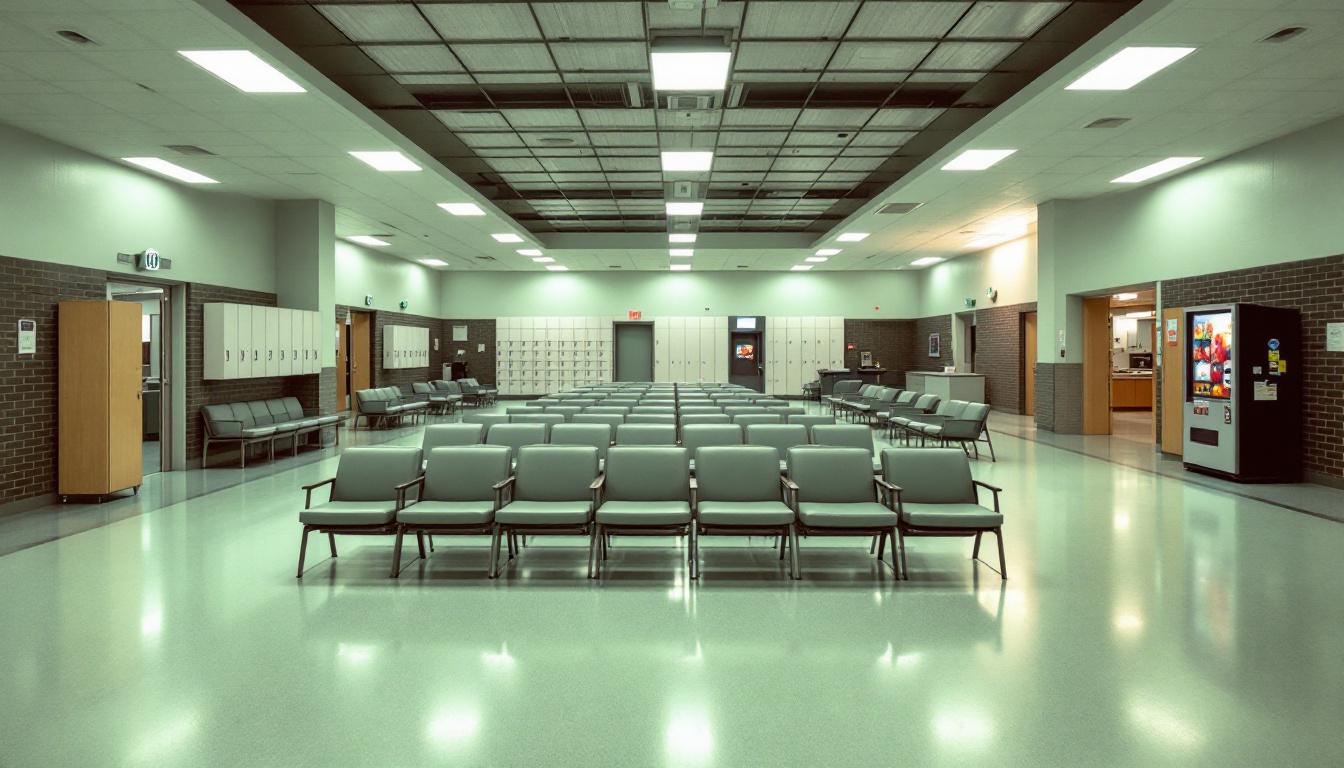
The steady rhythm of institutional announcements punctuates each day, marking transitions between meals, programming, and quiet periods that structure life within the facility's secure environment. Daily routines at the detention center currently follow established schedules that help individuals maintain stability during their stay, with activities that continue to provide both structure and opportunities for personal development. Generally, days begin early with breakfast service, followed by housing unit cleaning responsibilities, and then transition into various programming blocks that may include educational classes, counseling sessions, or work assignments depending on individual circumstances and facility needs.
Living accommodations typically consist of shared housing units where individuals reside in cells or dormitory-style arrangements, with basic furnishings that include beds, storage areas, and necessary hygiene facilities. The facility generally provides three meals daily in designated dining areas, with menus that aim to meet nutritional requirements while accommodating various dietary restrictions and religious observances. Also, individuals usually have access to commissary services where they can purchase approved personal items, snacks, and hygiene products using funds deposited by family members or earned through facility work programs.
Recreation opportunities often include scheduled time in outdoor areas when weather permits, along with indoor activities such as television viewing, reading materials from the facility library, and organized games or fitness programs. However, visitation policies typically allow family members and approved visitors to maintain contact through scheduled visits, video calls, or telephone communications, though specific arrangements may vary based on security classifications and facility guidelines. Work assignments within the facility offer individuals the chance to earn modest wages while contributing to daily operations through tasks such as kitchen duties, laundry services, or general maintenance, providing both structure and a sense of purpose during their time at the detention center.
Ready to Connect?
Start communicating with your loved one today
Search for an Inmate
